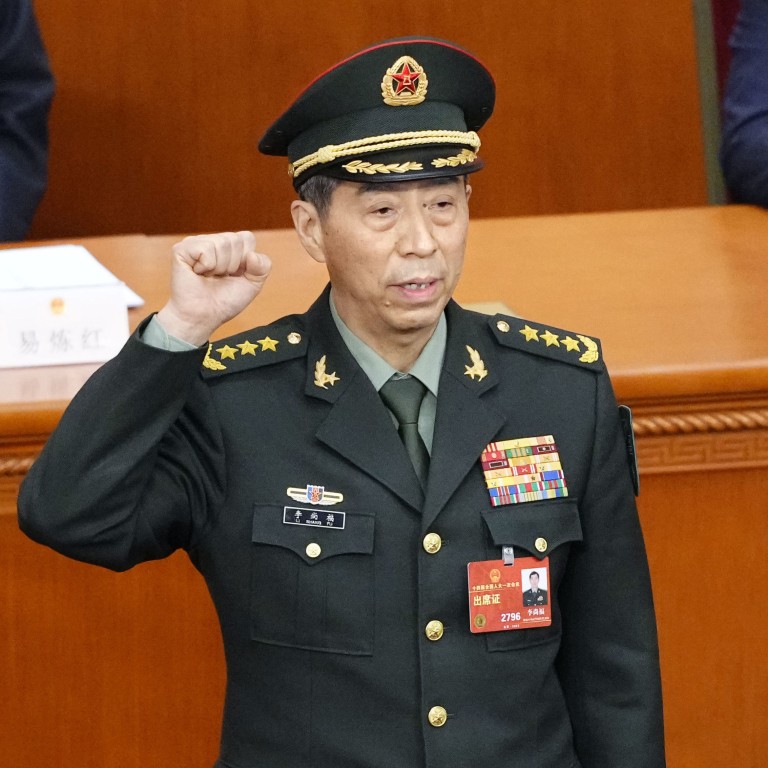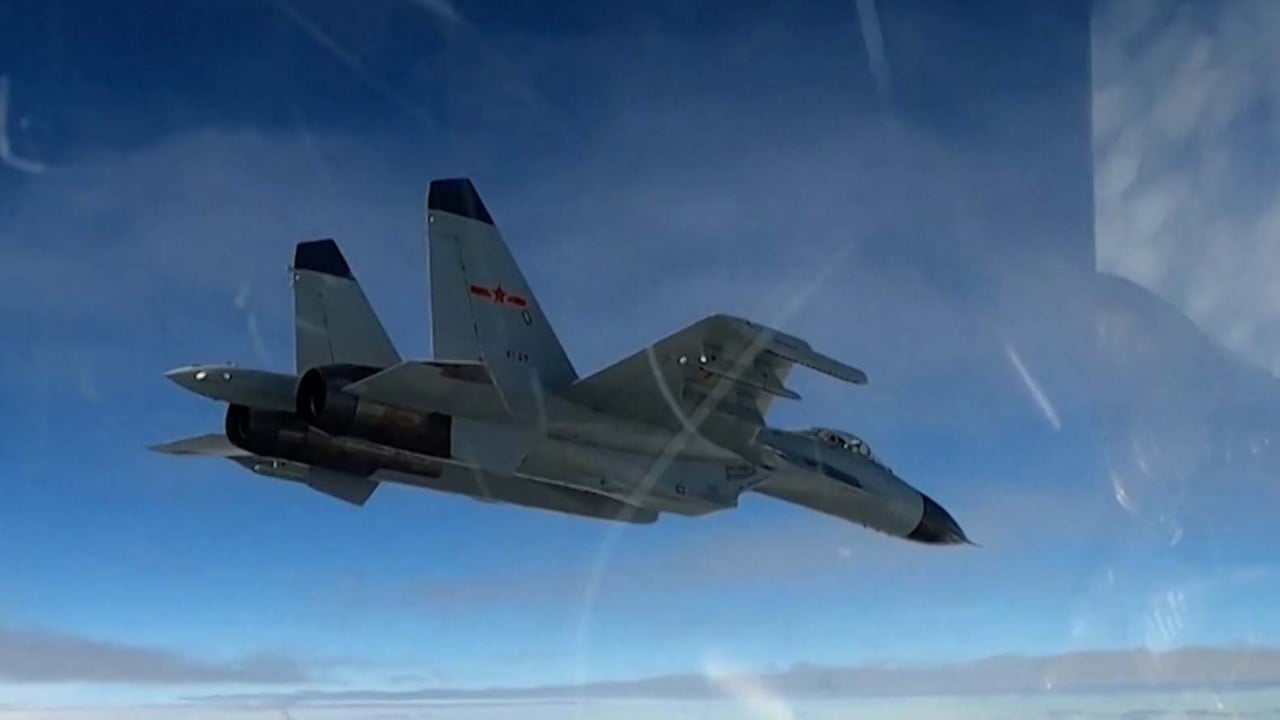
Are US sanctions on China’s new defence chief the real barrier to dialogue?
- Washington shows no sign of lifting long-standing sanctions on China’s new defence minister, observers say
- ‘Political sensitivities’ – not sanctions – are likely reason for stalled dialogue, one analyst says
The chances for high-level military discussions between the United States and China in the near future appeared unlikely as Washington showed no indication it would remove China’s new defence minister from a sanctions list, analysts said.
Lifting the sanctions on General Li Shangfu is considered a necessary step by Beijing for such talks to resume between the Pentagon and the People’s Liberation Army (PLA), but that appeared doubtful, according to Zhou Bo, a senior fellow from the Centre for International Security and Strategy at Tsinghua University.
‘Drawing wolves into house’: China warns Manila against closer US defence ties
Li was appointed as China’s defence minister and state councillor – China’s equivalent of a cabinet member- at the annual National People’s Congress in Beijing on Sunday. He was targeted by Washington in 2018 for violating US sanctions by allegedly helping to transfer Su-35 fighter jets and S-400 air-defence missile systems to China from Russia.
But Drew Thompson, a visiting senior research fellow at the National University of Singapore’s Lee Kuan Yew School of Public Policy, said the sanctions themselves were not the main legal barrier precluding engagement between the two militaries.
“Of course the US can lift sanctions … [but] it is more an issue of political sensitivities, rather than a legal barrier to engagement,” he said.
“The [Chinese] defence minister can engage the US defence secretary if desired, but [China’s ] ministry of national defence has declined proposals to engage at various levels over the past several months, including with [Li’s predecessor] General Wei Fenghe, so sanctions alone do not appear to be the barrier to dialogue.”
“The Chinese military leaders felt that their US peers refused to listen to them, including Beijing’s points of view on the Ukraine war, Taiwan and Hong Kong issues,” he said.
Beijing’s ‘reunification’ plan for Taiwan ‘on fast development track’
“If the Pentagon tries to mix professional defence talks with political issues, and just orders and instructs Chinese counterparts to compromise, it will drag US-China relations into a more complex confrontation that will be worse than the Cold War era.”
“If such guardrails are defined by the US as its way to stop the PLA from using force as the last resort for Taiwan reunification, Beijing will definitely reject it,” he said.
As China’s previous defence minister, Wei had represented China in face-to-face and virtual security summits, including meetings with his US counterpart Lloyd Austin, since 2018.


